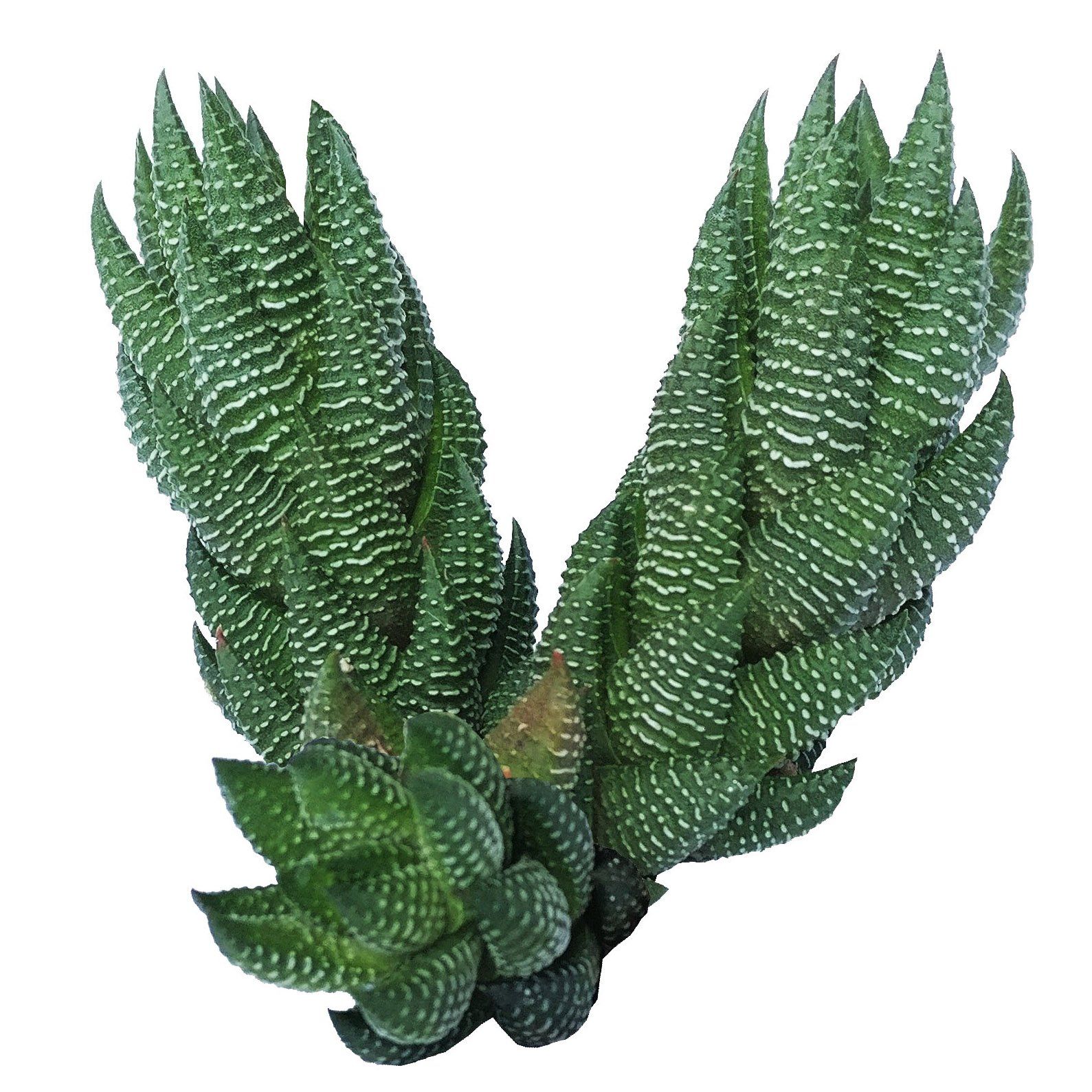The Zebra Plant Succulent Flower: A Unique and Beautiful Addition to Your Indoor Garden
Are you looking for a unique and low-maintenance plant to add to your indoor garden? Look no further than the zebra plant succulent flower! This hardy plant is known for its striking appearance and ability to thrive in a variety of conditions. In this article, we'll take a closer look at what makes the zebra plant so special and how you can care for it in your home.
What is the Zebra Plant?
The zebra plant (Haworthia fasciata) is a small succulent that is native to South Africa. It is part of the Asphodelaceae family, which also includes aloe and gasteria plants. The zebra plant gets its name from the distinctive white stripes on its dark green leaves, which resemble the stripes on a zebra. The plant typically grows to be about six inches tall and wide, making it a great choice for small spaces or as part of a larger arrangement.
Appearance
The zebra plant has thick, fleshy leaves that grow in a rosette pattern. The leaves are triangular in shape and have pointed tips. The white stripes on the leaves are raised and slightly translucent, giving them a unique texture. The plant produces small, tube-like flowers on long stems that can grow up to a foot tall. The flowers are typically white or pink and bloom in the summer.
Care and Maintenance
One of the great things about the zebra plant is that it is very easy to care for. Here are some tips to keep your plant healthy:
Light
The zebra plant prefers bright, indirect light. It can also tolerate some direct sunlight, but be careful not to expose it to too much or the leaves may burn.
Water
Like all succulents, the zebra plant is sensitive to overwatering. Allow the soil to dry out completely between waterings, and be sure to use a well-draining potting mix. In general, you should water your plant about once a week in the summer and once every two weeks in the winter.
Temperature
The zebra plant is happiest in temperatures between 65 and 80 degrees Fahrenheit. It can tolerate cooler temperatures, but avoid exposing it to frost or extreme heat.
Fertilizer
You don't need to fertilize your zebra plant very often, but you can give it a boost of nutrients during its growing season (spring and summer) by using a balanced fertilizer at half strength.
Propagation
One of the great things about succulents is that they are easy to propagate. You can propagate your zebra plant by removing offsets (small plants that grow from the base of the main plant) or by taking leaf cuttings. To remove an offset, simply gently pull it away from the main plant and plant it in a separate pot. To take a leaf cutting, carefully remove a healthy leaf from the plant and allow it to callus over for a few days. Then, plant the leaf in a well-draining potting mix and water sparingly until it begins to develop roots.
Uses
The zebra plant is a popular choice for indoor gardens and makes a great addition to any collection of succulents. Its unique appearance and low-maintenance nature also make it a great choice for beginners. In addition, some people believe that succulents like the zebra plant have air-purifying properties and can help improve indoor air quality.
Indoor Decor
The zebra plant is a great choice for adding some greenery to your home decor. Its small size makes it easy to tuck into corners or onto shelves, and its unique appearance is sure to draw attention. You can also pair your zebra plant with other succulents or cacti to create a desert-inspired display.
Gifts
Looking for a unique gift for the plant lover in your life? Consider giving them a zebra plant! This low-maintenance plant is a great choice for anyone who loves plants but doesn't have a lot of time to care for them.
FAQs
Q: Is the zebra plant poisonous?
A: No, the zebra plant is not toxic to humans or pets.
Q: How often should I water my zebra plant?
A: Water your zebra plant about once a week in the summer and once every two weeks in the winter. Be sure to allow the soil to dry out completely between waterings.
Q: Can I grow my zebra plant outside?
A: Yes, you can grow your zebra plant outside if you live in a warm, dry climate. Be sure to provide it with well-draining soil and plenty of sunlight.
Q: How do I know if my zebra plant is getting too much light?
A: If the leaves on your zebra plant to turn brown or yellow, it may be getting too much direct sunlight. Move it to a spot with less light and monitor its progress.
Q: How do I propagate my zebra plant?
A: You can propagate your zebra plant by removing offsets or by taking leaf cuttings. See the "Propagation" section above for more details.
Thank you for reading! We hope this article has inspired you to add a zebra plant succulent flower to your indoor garden. With its unique appearance and low-maintenance nature, it's sure to be a favorite. If you have any other questions about caring for your zebra plant, be sure to consult with a gardening expert or do some additional research online.










Post a Comment for "The Zebra Plant Succulent Flower: A Unique and Beautiful Addition to Your Indoor Garden"